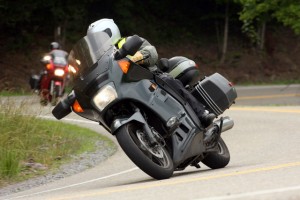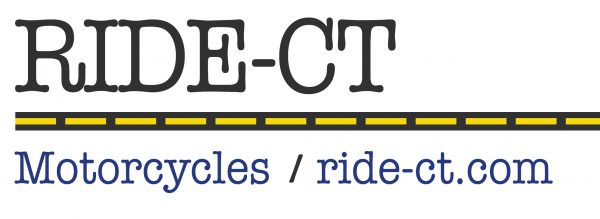By Steve Smith
 Many riders have never had any formal riding training. Years ago, there was no rider training, so they learned to ride at the school of hard knocks. Maybe a parent or spouse provided some basic instructions to get rolling. Some, like me, started out on dirt bikes at a young age and progressed to street riding in my teens. After becoming a competent trail rider, the physical operational skills seemed to translate well to street riding. I picked up tips from friends and managed to remain upright for many years.
Many riders have never had any formal riding training. Years ago, there was no rider training, so they learned to ride at the school of hard knocks. Maybe a parent or spouse provided some basic instructions to get rolling. Some, like me, started out on dirt bikes at a young age and progressed to street riding in my teens. After becoming a competent trail rider, the physical operational skills seemed to translate well to street riding. I picked up tips from friends and managed to remain upright for many years.
Near my home, there was this road with a really sweet, uphill, tight s-curve that I loved to drive my car and ride my bike through at an aggressive pace. Riding that turn on the bike there were times it felt nearly perfect, while other times I felt like I was fighting to keep the bike in the curve. This was disconcerting and I had no idea what was going on and just chalked it up to a less than stellar street riding skill set.
Fast forward a couple decades, I became friends with someone who had track raced and was a motorcycle instructor. We began riding together a lot and I would admire and attempt to emulate his techniques, following the same lines as him through turns.  Somehow he always made it look more fluid and effortless than I felt.
Somehow he always made it look more fluid and effortless than I felt.
One day he mentioned I should consider becoming a motorcycle instructor. I expressed my concern about my limited riding skills and was very surprised when he said I was better than I gave myself credit for. What I needed was to become more consistent with use of proper techniques. There are techniques? Who knew! I went through the training program. As I began applying and practicing proper techniques taught in the program my abilities and confidence improved immensely.
It was an eye-opening experience. Prior to this, I was one of those people I wrote about in a past column; the ones who say, “I don’t need rider education. I already know how to ride.”
If you are like I was, you should take inventory of your riding skills and ability, and perform an honest self-assessment. If you’re not sure, do like I did and consult a professional. Even experienced riders can learn something.
The Connecticut Rider Education Program (CONREP) offers several experienced rider level courses. One is geared to those who are already riding unlicensed (IRC). Successful completion satisfies the mandatory course requirement. Two other courses (ERC and ARC-ST) are for experienced, licensed operators.
All courses instruct techniques that will allow riders to become more proficient and safe. The cornerstone exercises provide instruction on maximum braking, swerving, and corning. If a person comes away learning one thing new or improving one skill it was a day and money well spent. For more information check out Ride4ever.org.
 Ride CT & Ride New England Serving New England, NYC and The Hudson Valley!
Ride CT & Ride New England Serving New England, NYC and The Hudson Valley!


